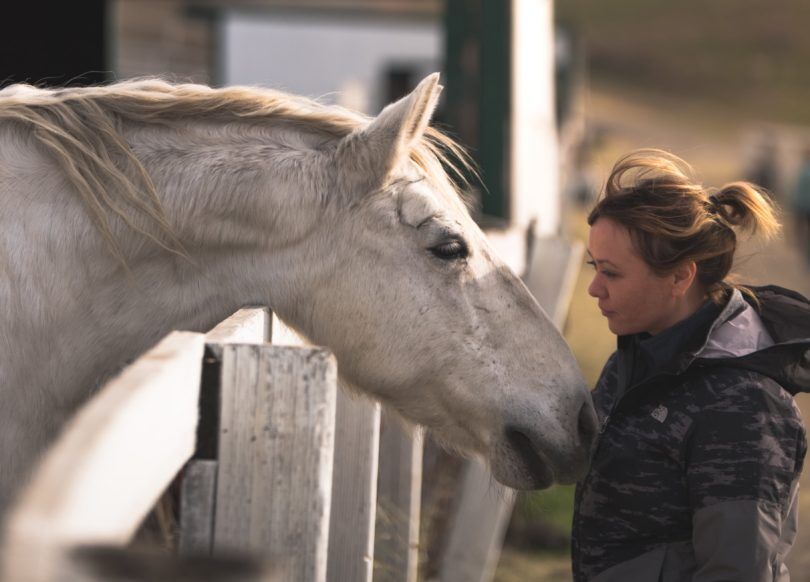Welcome to the horse world!
Do you know what the best kind of midlife crisis does? It gets you on the back of a horse! For many of us, our horsey aspirations were sidelined after our childhood. It’s a hobby that can take up a lot of time, and with college, kids, and career, life is already pretty full.
Maybe your own kids are starting to talk about riding camp, or you’ve been driving by a riding facility every day on your commute, and thinking it would be crazy to start taking lessons at this point in your life.
Heck no! We support Horse Rookies of all ages, and we’re going to tell you why it’s a great idea.
Why It’s a Great Time to Start Riding
Our metabolism starts slowing down as we get into our 40s.
Even if your activity level hasn’t changed, or your diet, pounds start to stick around more than they used to. Those ever-present 24-hour gym ads start looking pretty necessary.
Horseback riding is a great way to get fit.
Best of all, you can do it while working with some of the most wonderful creatures out there. Wouldn’t you rather work on your core muscles and abs on the back of your own personal unicorn?
Riding is also great for your coordination and balance. The better you get, the more muscles you’ll be isolating and using. You’ll also have the extra rewards of flexibility and strength – especially if you do barn work, like pushing a wheelbarrow, cleaning stalls, or carrying buckets.
Hello biceps and sleeveless tops!
Reclaim your dreams.
You’ve likely been caring for others, whether it’s a partner, kid, or aging parents. You may have lost your sense of the “real you” in the process. Horse riding can be something you do for yourself — and no one else.
Age is just a number when it comes to horse riding. Check out Horse Riding as an Adult: Why It’s Never Too Late to Learn to see why!
Tips for Horse Rookies in Their 40s
- Learn with other adults: Find out if there are classes for adult beginners in your area. These are a great way to get your first rides under your belt without either being distracted by kids or feeling out of place. There are a lot of new adult riders out there, and you’ll make friends and have a peer group to swap tips and stories. There’s nothing like the camaraderie of the barn!
- Improve your overall fitness level: Riding can be a good workout, but you’ll progress even faster if you engage in some cardiovascular activity, like walking, on the days you aren’t riding. Weight work and stretching will also help your riding skills, and you’ll be pleasantly surprised at how toned you become. Take a peek at pro riders, and you’ll notice that they’ve developed lots of long, lean muscles, and awesome upper body strength. When your friends notice, you can tell them that you’re working with a personal trainer. Just leave out that part about him being a horse!
- Get current: If you haven’t gone riding in years, some things have changed. You’ll need to invest in a quality riding helmet, for starters. Not only has safety technology advanced a lot, there are new styles and colors that make them look appealingly sporty. Learn more about the gear you need to ride horses as an adult.
Brush up on the basics before heading to the barn by reading How to Ride a Horse for Beginners (Basics, Safety, Mistakes).
P.S. Enjoy this article? Trot on over to:
- What Gear Do You Need to Ride Horses as an Adult
- Horse Riding for Older Adults: Why It’s Never Too Late
- How to Ride a Horse for Beginners (Basics, Safety, Mistakes)
- Horseback Riding: What to Wear (With Pictures)
- 9 Rookie Approved Horseback Riding Boots for Beginners
- Horse Riding Safety Equipment That’s Worth Every Penny
- Horses & Hitching Posts: How to Tie Right Every Time

